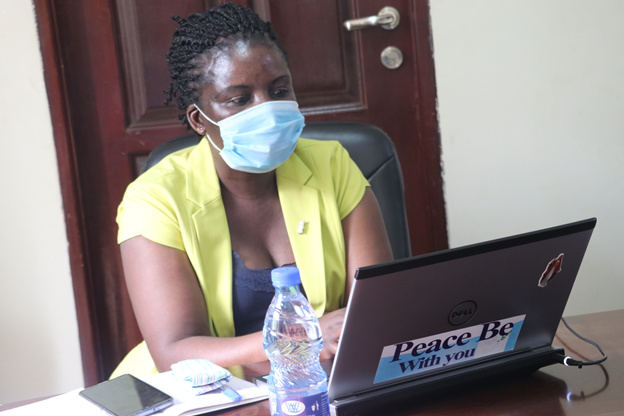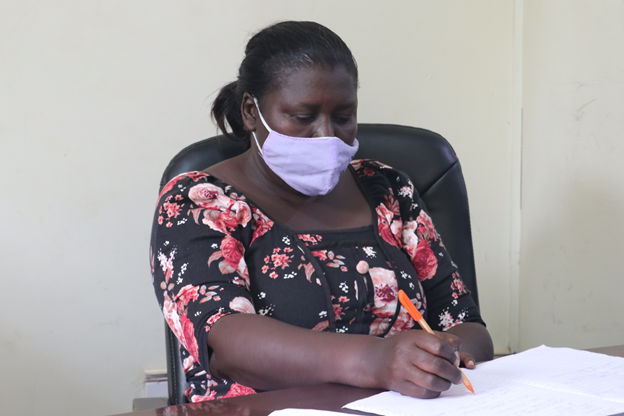
Type 2 Diabetes Mellitus (T2DM) is among the leading causes of mortality and ill-health worldwide, accounting for over one million deaths. In Uganda alone, a steady increase in the number of diabetes cases has been observed.
Despite the increasing burden of diabetes in the country, little is known about the socio-cultural norms influencing type 2 diabetes risk behaviours, especially in rural areas to inform action.
Moved by the plight to contribute to this cause, Makerere University researchers have embarked on a study to gather evidence to bridge this gap. The researchers broke the news to a section of stakeholders at a December 4th 2020 dialogue held at Grand Global Hotel in Kampala.
The study will be carried out to understand the patterns of socio-cultural norms influencing risk behaviour in two high incidence districts namely, Busia and Bugiri, in Eastern Uganda.
Funded by Makerere University Research and Innovation Fund, the project aims at establishing community-led social labs which will lead to the development of social innovations that contribute to addressing negative social norms.

Titled; “Socio-cultural norms influencing Type 2 Diabetes risks Behaviours – an exploratory to intervention co-design innovative study in two high incidence districts of eastern Uganda”, the study is led by Dr. Juliet Kiguli, a Senior Lecturer in the Department of Community Health and Behavioural Sciences at MakSPH.
“There is very little evidence on the deep-rooted social constructs around type 2 diabetes risk behaviours,” says Dr. Kiguli. Because of this, treatment and prevention are often addressed using a limited biomedical approach.
She also notes that understanding the socio-cultural norms influencing diabetes risk behaviour may help explain the current trend of the rising number of people developing type 2 diabetes.’’
‘’We are conducting research that focuses on the drivers and socio-cultural norms that promote type 2 diabetes. This research will help in generating evidence among communities to enhance behavioural change and promote social norms that limit T2D behaviors.’’ explained Dr. Kiguli.

This study will build on previous studies conducted in Iganga and Mayuge by the School of Public Health. In one of the studies, changing from high-risk behaviours such as giving up on fried food was perceived as forfeiting a good life. And another study showed that people’s dietary practices are different from their knowledge and that food is entrenched within social and gender paradigms.
Citing a recent study on Type 2 Diabetes, Dr. Kiguli further warned the diabetic prevalence rate of 7.2% in Eastern Uganda leaves a lot to be desired in averting the Non-Communicable Disease.
She further underscores the need to live a healthy lifestyle by eating a balanced diet rich in fruits and vegetables.
‘’People should conduct physical exercise on most days. Exercise is easier and more sustainable if it is based on activities of daily living such as domestic chores, gardening, and walking. Individuals aged 40 and above should go for periodic check-ups, including testing for blood sugar,” Dr. Kiguli recommends.
Mr. Bob Kirunda, a co-investigator equally notes that the study will help address the social norms data gap because type two diabetes is about behaviour, how people eat and their lifestyle and lifestyle is influenced by social determinants
‘’Looking at literature, there’s hasn’t been enough done to understand how social constructs influence the behaviours that eventually lead to type two diabetes. This study will focus on the root cause by identifying social norms around key drivers. This is because; experience has shown that if you focus on drivers alone and not norms around the drivers. You are actually treating the effects, not the root cause,’’ Kirunda explains.
Sr. Nabwire Mary, a senior Nursing Officer in Bugiri District has welcomed the study, saying it is timely.
‘’As a focal person, I can tell you that documentation has been an issue because we hardly have any data on even diabetic people. Before we even conduct the study, I have learnt a lot in regards to the importance of documentation ‘’ she joyously reveals.

During the meeting, the researchers highlighted alcohol, consumption of unhealthy foods, physical inactivity, smoking, stress, and lack of routine medical checks as some of the factors that need to change to reduce the risk of type 2 diabetes. The role of religious and cultural leaders in behavioural change was also discussed.
MORE ABOUT THE STUDY
The study will involve diabetes patients working together with the research team to co-design solutions that address public health problems and also employ qualitative methods comprised of social network analysis specific to risk behaviour, influence mapping, problem tree analysis, and vignette.
Additionally, interviews will be conducted by way of focus group discussion, in-depth interviews, reference group members, and key stakeholders.
The research team consists of the following researchers: Dr. Juliet Kiguli (Principal Investigator), Dr. Roy William Mayega, Dr. Francis Xavier Kasujja, Mr. Bob Ramadhan Kirunda, Ms. Gloria Naggayi, Ms. Joyce Nabaliisa, Sr. Nabwire Mary, and Sr. Nampewo Evarine Wabwire.
Written by Joseph Odoi and Francis Xavier Kasujja

